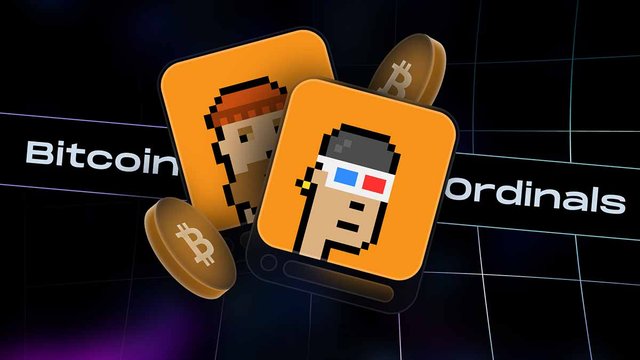
The world of non-fungible tokens (NFTs) has been set ablaze with the emergence of Bitcoin Ordinals, minted on the world's most valuable blockchain. These unique digital assets have swiftly risen to prominence, posing serious competition to other networks and transforming the way people trade. While Ethereum has long reigned supreme as the dominant blockchain for NFTs in terms of trading volume, Bitcoin has firmly secured its position in second place for over three weeks now.
This significant shift in the NFT space not only frustrates rival chains like Solana and Polygon, which have consistently occupied the second and third spots for months, but it also has the potential to combat a pervasive issue in the industry: wash trading.
Wash trading refers to artificial trading practices that artificially inflate trading volumes, distorting market dynamics by creating a false impression of supply and demand. However, when it comes to NFT trading on the Bitcoin network, this manipulative practice becomes significantly more challenging to execute.
The Block's Director of Research, Steven Zheng, highlighted the limitations of wash trading on Bitcoin, stating, "You can't really create tokens and advance smart contracts on Bitcoin, thus making token incentives for trading near impossible and wash trading less likely." Unlike Ethereum, which has allowed exchanges like LooksRare and Blur to introduce ambitious token-incentive programs, Bitcoin lacks the infrastructure to facilitate such incentives, at least for now.
Prior to the emergence of these token-incentive programs, wash trading was minimal. However, with the introduction of Blur's rewards system, which grants tokens to traders based on their total trading value, the landscape has changed. For instance, Blur's platform enticed traders by awarding BLUR tokens based on the value of the NFTs they traded. The allure of these incentives prompted traders to sell high-valued NFTs from collections like Bored Ape Yacht Club and CryptoPunks. During the peak of Blur's program in February, its token reached a price of $1.24, with over $600 million in trading volume on the NFT marketplace.
While trading activity can make the NFT market appear more robust than it actually is, it is essential to recognize that weekly trading volumes remain more than 90% lower than during the peak of the 2021 bull run. Nonetheless, many industry participants argue that wash trading casts a dark cloud over the NFT space for various reasons.
According to web3 advocate kouk_web3, wash trading distorts the NFT market, creating an illusion of demand and value. This deceptive practice erodes trust, exposes genuine investors to potential losses, and may even trigger regulatory crackdowns. Leading blockchain analytics firm Chainanalysis echoed these concerns in a 2022 report, suggesting that NFT wash trading exists in a legal gray area. Although wash trading is prohibited in conventional securities and futures markets, regulatory enforcement actions specific to NFTs have yet to materialize. However, with regulators shifting their focus and considering applying existing anti-fraud authorities to new NFT markets, this landscape could soon change.
Why Entrepreneurs Should Consider Creating a Bitcoin Ordinals Marketplace
With Bitcoin Ordinals making waves in the NFT trading arena and the potential to address the wash trading issue, entrepreneurs should take note of the opportunities presented by this emerging market. Here are a few reasons why creating a Bitcoin Ordinals marketplace is worth considering:
Building Legitimacy: The rise of Bitcoin Ordinals offers an opportunity to restore legitimacy to the NFT market. By leveraging the unique properties of the Bitcoin network, entrepreneurs can create a transparent and trustworthy trading environment that discourages wash trading practices.
Attracting Authentic Investors: A Bitcoin Ordinals marketplace can attract genuine investors who seek to engage in NFT trading without the risk of falling victim to manipulative practices. By emphasizing a fair and secure platform, entrepreneurs can cultivate an investor community focused on long-term value and growth.
Regulatory Compliance: With regulators increasingly eyeing the NFT space, entrepreneurs have the chance to establish a Bitcoin Ordinals marketplace that adheres to regulatory requirements from the outset. By prioritizing compliance, entrepreneurs can position their platform favorably, mitigating the risk of future regulatory challenges.
Expanding Market Reach: Bitcoin's brand recognition and widespread adoption provide a strong foundation for entrepreneurs aiming to create a thriving marketplace. Leveraging the popularity and liquidity of Bitcoin can help attract a larger user base, increasing trading volumes and liquidity on the platform.
Exploring Innovative Features: The nascent nature of Bitcoin Ordinals presents an exciting opportunity for entrepreneurs to experiment and introduce novel features to enhance the user experience. By pushing the boundaries of what is possible on the Bitcoin network, entrepreneurs can differentiate their marketplace and offer unique value propositions.
In conclusion, Bitcoin Ordinals have emerged as a force to be reckoned with in the world of NFT trading. Their rise to prominence has introduced competition to established networks and has the potential to curb wash trading practices. Entrepreneurs should recognize the opportunities presented by Bitcoin Ordinals and consider creating a marketplace that not only leverages the benefits of the Bitcoin network but also fosters legitimacy, attracts authentic investors, prioritizes regulatory compliance, expands market reach, and explores innovative features. By doing so, they can carve a niche in the evolving landscape of NFT trading and position themselves for success.